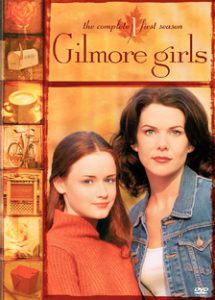“Poker Face” (Peacock) starts off as an earworm – I’d bet 50 percent of viewers have “puh-puh-puh-poker face” in their head when thinking about the title – and by the end of its 10-episode first season it’s truly addictive. I’ll be back for Season 2, as will Charlie Cale (Natasha Lyonne), a modern-day hippie who has the superpower of being able to detect spoken lies.
On the road again
Created by Rian Johnson (the “Knives Out” films), “Poker Face” is set in present day but revels in a 1970s aesthetic. Opening title cards include the roman-numeral copyright atop a vista of Charlie’s latest stop. In each episode, Charlie is in a new place on the American backroads – as per being hunted by a Las Vegas casino magnate (Ron Perlman, just a phone voice till the finale), who blames her for the fiasco of episode one.
You probably heard that “Poker Face” draws from “Columbo,” which had its heyday in the Seventies (although I remember watching the Nineties specials with my folks). The parallel is valid, but – beyond the fact that both shows are in the howcatchem subgenre of murder mysteries – the influence is primarily in Lyonne’s performance. She naturally has a raspy and accented voice like Peter Falk.
“Poker Face” Season 1 (2023)
Peacock, 10 episodes
Creator: Rian Johnson
Starring: Natasha Lyonne, Benjamin Bratt, Simon Helberg
But there’s a key difference: Columbo feigns ignorance around suspects he (and we, the viewer) knows are guilty. Charlie, on the other hand, is confused. She comes upon a murder that’s masterfully maneuvered by the villain(s) to look like an accident. They would get away with it scot-free except that they tell a lie around Charlie, and she then bumbles toward the truth. She’s not any smarter than the average person, but she’s armed with the special knowledge that the person lied about something they had no reason to lie about.
Often, genre TV asks us to buy into one unrealistic thing. In “Poker Face,” that’s Charlie’s superpower. But there’s a second thing: She happens to regularly come across murders as she traverses the country. And a third thing: The casino magnate – via henchman Cliff (Benjamin Bratt) – is always a step behind her in a 2023 where (in the real world) it would be almost impossible to exist off the grid.
The dark backroads
At first, I thought Johnson was asking us to buy into too much unrealistic stuff. I thought “Just make Charlie a detective, like Columbo.” By the end of Season 1, I changed my mind. I think “Poker Face” is making an intriguing argument that murders do go unsolved, and even unknown, more than we think. Put a human lie detector in the mix, and a darker layer of reality is revealed.

As for living off the grid, I feel like there aren’t as many no-documentation, cash-only (yet not involving drugs) jobs out there as the show suggests.
But “Poker Face” balances this out with down-to-earth people and places. Episode two, “The Night Shift,” features one of those “towns” that to a traveler appears to be an intersection with gas stations and a Subway. The hour evokes a certain melancholy not only in that Charlie is stuck in this New Mexico outpost till the murder is solved, but also via the guest characters who live there and don’t have the money to move elsewhere.
Every hour has this vibe to a certain degree, but the series gets “happier” as it goes along. Contributing to the fun vibe is that Charlie is so darn likable. Sure, Lyonne has an edge with that raspy voice, and Charlie smokes and drinks (without thematic commentary), unusual for a present-day show. Charlie is plucky and resourceful, as she has to be in order to stay alive.
The finale, “The Hook,” makes her even more sympathetic as Charlie’s sister (Clea DuVall) accuses her of “choosing” life as a vagabond. This is a good philosophical debate. It is freeing to say that we always have a choice. But what’s left out of that argument is that we rarely have unlimited choices. We often have binary choices (“the trunk or the passenger seat – your choice,” Cliff says). The third choice (freedom) is not available in every situation.
A formula, but with layers
That said, Charlie sees a lot of the USA, and there is something freeing about being on the road, even if it’s in a beat-up 1969 Plymouth Barracuda that leaves her stranded as often as her lack of cash and desire to stay until justice is served.
And it shouldn’t be overlooked that the howcatchem plotting of every episode is consistently intelligent, often quite clever. While “Poker Face” does have a formula – we see the crime, then later see how Charlie fits into it – it adds new wrinkles, particularly in the snow-encrusted “Escape from Shit Mountain” (9), a “Simple Plan” riff where Charlie is a life-or-death participant, not merely an observer.
The guest stars are a regular perk — established actors having a blast in a mini-movie. “Shit Mountain” features an against-type Joseph-Gordon Levitt, but my favorite is Nick Nolte as an old-school stop-motion animator in episode eight, “The Orpheus Syndrome.” Nolte has developed into the go-to actor for playing old dudes beaten down by life. It’s no wonder Charlie finds kinship with him.
Oh, just one more thing: Johnson’s resume is an exercise in bringing back classic moviemaking (or TV-making) styles, but also, he often suggests at something extra. In “Poker Face,” it’s Charlie’s disembodied supernatural helper (karma?). In the finale, a ring reappears on Charlie’s finger even though she keeps taking it off. It proves important in the final showdown.
God looks out for stupid people, and karma perhaps looks out for good people like Charlie. It’s a nice thought, if nothing else. I’ll be looking out for Season 2; she has earned it.

